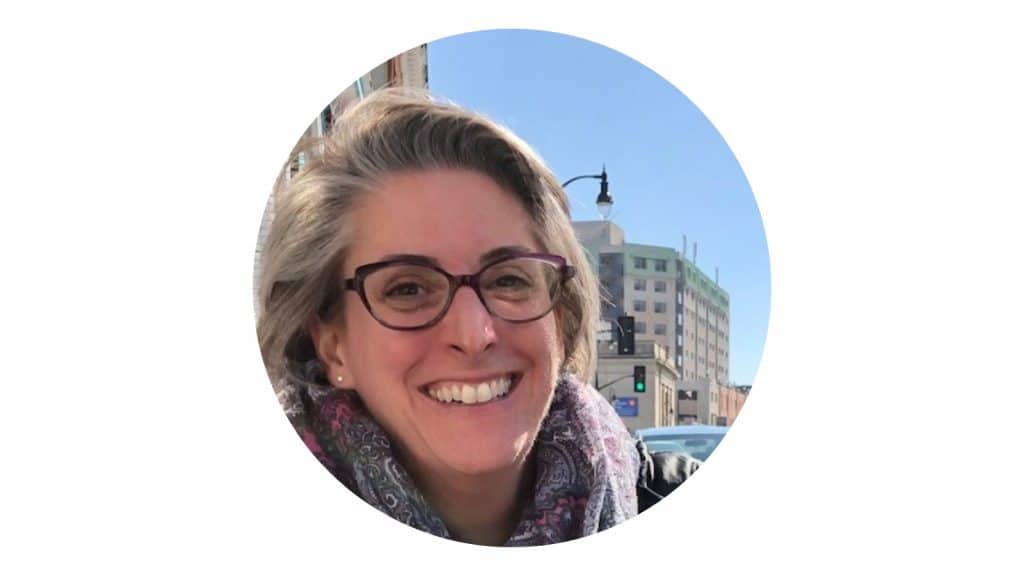Does anybody walk around saying, I’ve got that kind of cancer?
My family has a history of cancer, but I was pretty healthy until I was diagnosed.
At Princess Margaret Hospital, I learned about Gilda’s Toronto. I’ve signed up for many programs; I’m a frequent flyer.
In 2022 I completed the post-treatment support group. I’m good at looking for the silver lining and focusing on the positive, but I struggled and needed to talk about what I was going through. The give and take in the support group sessions were remarkable. I got a lot more out of it than I ever anticipated.
It’s easy to talk about some kinds of cancer; everybody’s heard about breast, brain, and leukemia. Does anybody walk around saying, “I’ve got anal cancer?”
The surprising thing was that when I got that diagnosis, and then I started to tell some people, I was shocked by how many people said, “Oh, my friend had that. Oh, yeah, hers was that kind of cancer, too,” or “my uncle had that.”
I took part in a learning session at Gilda’s Toronto about colorectal cancer. That was helpful. When you have a type of cancer that people don’t talk about, you ignore the symptoms, and it progresses. If you do that, you may be dealing with something more complicated and life-threatening than it would have been if you hadn’t been afraid to speak up and seek help.
When I was diagnosed, they also found a growth on my lung, but they didn’t think it was metastatic cancer. They monitored it after chemo and radiation, and it didn’t change. They did a biopsy and discovered it was another primary cancer. Just before the post-treatment support group began, I found out I had lung cancer, and I was going to need surgery. I didn’t have all my treatment behind me yet.
The Gilda’s Toronto facilitator ensured I was still comfortable participating and that others were comfortable too. We shared our experiences, put our treatment behind us and found ways to move forward. Some of us are now connected outside the support group.
Another profound thing I learned in this session was how we protect the people we love from what we’re experiencing. It’s kind of crazy. They want to help you, but you’re trying to protect them, and you don’t even realize it. Then you’re in this group with these other people, and they’re saying the same thing.
A terrific tool the therapist provided was the feelings wheel. In the centre are emotions, and the ring around them is divided into other feelings. You’re scared, sad, or angry, but you might not have the vocabulary to describe it fully. At a basic level, I felt crappy. The feelings wheel helped me consider other feelings within that.
The challenge is moving from routines around doctors and treatments and taking the time to heal and recover. The treatment always takes so much out of you, whether it’s surgery, chemo or radiation. It was a bit of a struggle when I got the lung cancer diagnosis because I had just returned to work and was looking forward to returning to my old routines.
I started doing yoga classes at Gilda’s Toronto and signed up for a second nutrition showcase. There was an education series last year about death and dying. It was fabulous. There’s also one about death doulas and dealing with your grief—all very beneficial topics.
Gilda’s Toronto has reached a much larger audience because of Covid-19. Now everything’s online. Zoom has made its programming accessible to people who wouldn’t have come downtown.
Find out more about the diverse programs and services we offer at Gilda’s Toronto. Visit our support services pages.

